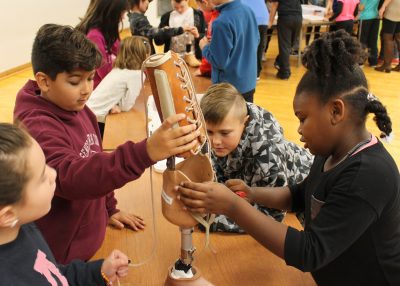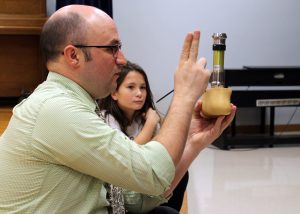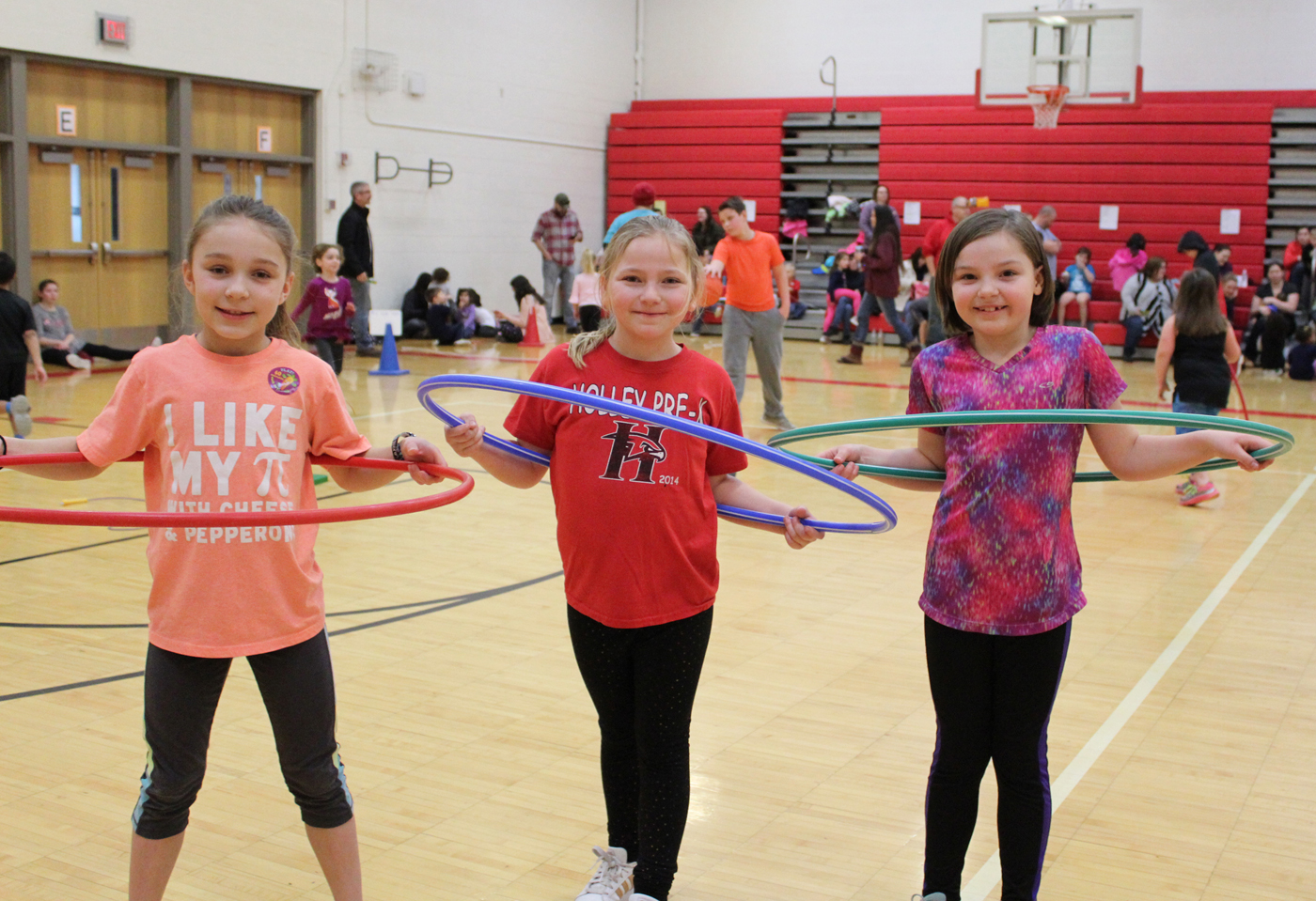Hilton fourth graders learn how engineering changes lives

Fourth graders in Northwood Elementary School’s REACH (gifted and talented) program now have a pretty good idea of how a prosthetic limb works. That is because they actually had the opportunity to assemble one. The activity was part of an engineering unit where students learned about types of engineers and how they think, plan and design based on the criteria and constraints for a particular task.
The class designed and built bridges and parachutes, and even packaging that would allow M&Ms to be enjoyed in space. Most recently, students learned how the work of engineers helps both people and animals with missing limbs. They studied Winter, a dolphin, and Pierre, a penguin, who both survived because of the work of engineers.
“One of my goals this year is to provide opportunities to connect classroom learning to authentic learning experiences,” said Melanie Klock, REACH teacher. So she approached Sean Zeller, a prosthetist, about sharing how his work is connected to the engineering design process the students learned in class.

Zeller, a certified prosthetist/orthotist (CPO) at the University of Rochester, works with Northwood fourth grader Juliana Turner, who was born without the lower part of one leg. Juliana’s triplet sisters, Angela and Lia, are students in the REACH class.
Zeller talked to all of the fourth grade classes about the history of prosthetics and the process of making them. Juliana brought along two of the 15 prosthetics she’s used, including the first one she had as a baby.
At the end of the assembly, Juliana was presented with a gift certificate for her own gymnastics mat to use at home. An avid gymnast, she takes lessons at the Northwest YMCA. “Juliana always comes to practice with a smile and a positive attitude,” said her instructor Maria Russo. “She is willing to help her peers improve and works hard to personally improve.”
After the assembly, Zeller gave the REACH students boxes of parts so that they could work in groups to assemble different types of prosthetic legs. Each of the groups assembled their prosthesis correctly.
“Helping students engage in tasks that are directly connected to what the true discipline requires provides them with authentic and meaningful learning,” said Klock.



